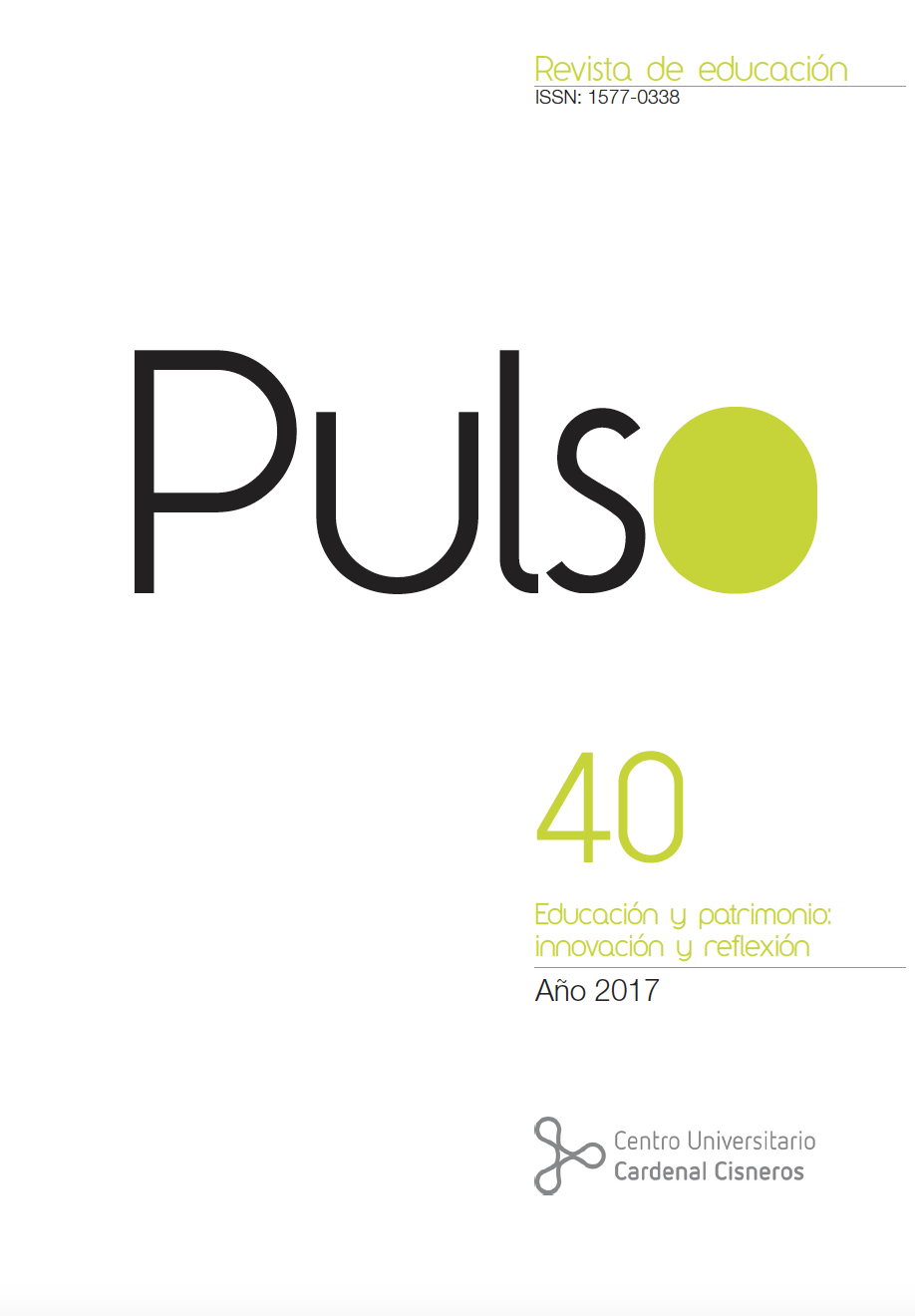Using cultural heritage in history teaching: views from teacher training in Portugal and Brazil
DOI:
https://doi.org/10.58265/pulso.5107Keywords:
Heritage Education, History teaching and learning, Teacher education, Continuing educationAbstract
This paper presents two research studies in the field of heritage education carried out in Portugal and Brazil, both of them focusing on the use of heritage in history teaching, within a group of experienced history teachers undertaking continuing education and a group of Brazilian trainee teachers. From an essentially qualitative approach, the research projects aimed at understanding these teachers’ perspectives regarding the use of local cultural heritage - tangible and intangible - in teaching activities, and consequently in student learning, in view of their relationship with the process of making sense of the past. Regarding research results, Portuguese teachers’ responses were more connected to approaching sources after the contextualization of the subjects in substantive terms, but some teachers emphasized the intersection of sources and their interpretation in context, within their proposals of activities for the exploration of local heritage. Brazilian trainee teachers also recognized the possibility of understanding historical processes using different heritage sources, by questioning them and constructing historical interpretations of the past.
Downloads
References
Ashby, R.; Lee, P. y Shemilt, D. (2005). Putting principles into practice: teaching and planning. En Donovan, M. S. y Bransford, J. D. (Eds.), How students learn: History in the classroom(pp. 79-178). Washington DC: The National Academies Press.
Barca, I. (2006). Literacia e consciência histórica. Educar em Revista, n.º especial, 93-112.
Brasil (2002). Constituição da República Federativa do Brasil: texto constitucional promulgado em 05 de outubro de 1988, com as alterações adotadas pelas Emendas Constitucionais números 1/92 a 35/2001 e pelas Emendas Constitucionais de Revisão números 1 a 6/94. Brasília: Senado Federal, Subsecretaria de Edições Técnicas.
Brasil (2000). Parâmetros Curriculares Nacionais: História (Ensino Médio). Brasília: MEC, Secretaria de Educação Fundamental.
Brasil (1998). Parâmetros Curriculares Nacionais: História. Brasília: MEC, Secretaria de Educação Fundamental.
Brasil (1996). Lei de Diretrizes e Bases da Educação Nacional (LDB). Lei nº 9.394, de 20/12/1996, publicada no Diário Oficial da União a 23/12/1996, Seção I.
Calaf, R. (2006). Cruzar miradas. En Calaf, R. y Fontal, O. (Eds.), Miradas al patrimonio (pp. 23-50).Gijón: Ediciones Trea.
Cooper, H. (2002). Didáctica de la Historia en la educación infantil y primaria. Madrid: Morata.
Creswell, J. (2007). Qualitative inquiry and research design: choosing among five approaches. London: Sage.
Fontal, O. (2003). La educación patrimonial: teoría y práctica en el aula, el museo e internet, Gijón: Ediciones Trea.
Estepa, J. y Cuenca, J. (2006). La mirada de los maestros, profesores y gestores del patrimonio. Investigación sobre concepciones acerca del patrimonio y su didáctica. En Calaf,R. y Fontal,O. (Eds.), Miradas al patrimonio (pp. 51-71). Gijón: Ediciones Trea.
Horta, M. L. P. et al. (1999). Guia Básico de Educação Patrimonial. Museu Imperial. Brasília: IPHAN/MinC.
Pais, J. M. (1999). Consciência histórica e identidade: os jovens portugueses num contexto europeu. Oeiras: Celta Editora.
Pinto, H. (2015). Educação patrimonial e educação histórica: contributos para um diálogo interidentitário na construção de significado sobre o passado. Diálogos, 19 (1), 199-220 Retirado de http://dx.doi.org/10.4025/dialogos.v19i1.1049 [30/05/2015].
Pinto, H. (2016). Educação histórica e patrimonial: conceções de alunos e professores sobre o passado em espaços do presente. Porto: CITCEM – Centro de Investigação Transdisciplinar «Cultura, Espaço e Memória».ISBN: 978-989-8351-57-9.
Pinto, H. y Molina, S. (2015). La educación patrimonial en los currículos de ciencias sociales en España y Portugal. Educatio Siglo XXI, vol. 33 (1), 103-128. Recuperado de http://revistas.um.es/educatio/article/view/222521/174771
Pires, E. (1987). Lei de Bases do Sistema Educativo: apresentação e comentários. Porto: Edições Asa.
Rüsen, J. (2004). Historical Consciousness: narrative structure, moral function, and ontogenetic development. EnSeixasP. (Ed.), Theorizing Historical Consciousness (pp. 63-85). Toronto: University of Toronto Press.
Squinelo, A. P. (2015). Os espaços urbanos. En Squinelo,A. P. (Ed.).A Guerra do Paraguai ontem e hoje: Mato Grosso e Mato Grosso do Sul (1868-2003),(pp. 135-148). Campo Grande-MS: Ed. UFMS.
Squinelo, A. P. (2017). Patrimônio e Educação Patrimonial sob o olhar de oficinas desenvolvidas no PIBID/UFMS/História: o caso dos municípios de Aquidauana e Anastácio (Brasil/MS). Actas do XVI Congresso Internacional das Jornadas de Educação Histórica – Epistemologias e Ensino de História. Porto: Faculdade de Letras da Universidade do Porto [no prelo].
Downloads
Published
How to Cite
Issue
Section
License
Copyright (c) 2022 Pulso. Revista de educación

This work is licensed under a Creative Commons Attribution-NonCommercial-NoDerivatives 3.0 Unported License.
This journal offers immediate open access to its content based on the idea that offering readers free access to research favours a global exchange of knowledge.
Papers are published in the electronic version of the journal under a Creative Commons License: Attribution-NonCommercial-No derivatives 4.0 International
Authors are allowed and encouraged to promote the post-print version (reviewed and accepted for publication version) of their work online before publishing them. This favours their earlier circulation and dissemination and thus a possible increase in their citation and reach among the academic community.














